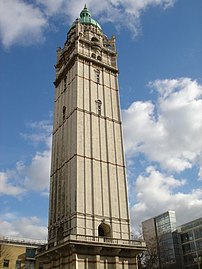In a few hours I will be giving a short presentation to the whole of the PSB conference on the workshop that we ran on Monday. We are still thinking through the details of what has come out of this and hopefully the discussion will continue in any case so this is a personal view. The slides for the presentation are available at Slideshare.
To me there were a couple of key points that came out. Many of these are not surprising but bear repeating:
- Citation and improving and expanding the way it is used lies at the core of making sure that people get credit for the work they do and making the widest range of useful contributions to the research community
- Persistence of identity, and persistence of objects (in general the persistence of resources) is absolutely critical to making a wider citation culture work. We must know who generated something and be able to point to it in the long term to deliver on the potential of credits.
- “If you build it they won’t come” – building a service, whether a technical or a social one, depends on a community that uses and adds value to those services. Build the service for the community and build the community for the service. Don’t solve the problems that you think people have – solve the ones that they tell you they have
The main point for me grew out of the panel session and was perhaps articulated best by Drew Endy. Identify specific problems (not ideological issues) and make process more efficient. Ideology may help to guide us but it can also blind you to specific issues and hide the underlying reasons for specific successes and failures from our view. We have a desperate need for both qualitative data, stories about successes and failures, and quantitative data, hard numbers on uptake and the consequences of uptake of specific practice.
Taking inspiration from Drew’s keynote, we have an evolved system for doing research that is not designed to be easily understood or modified. We need to take an experimental approach to identifying and solving specific problems that would let us increase the efficiency of the research process. Drew’s point was that this should be a proper research discipline in it’s own right, with the funding and respect that goes with it. For the presentation I summarised this as follows:
Improving the research process is an area for (experimental) research that requires the same rigour, standards (and funding) as anything else that we do



